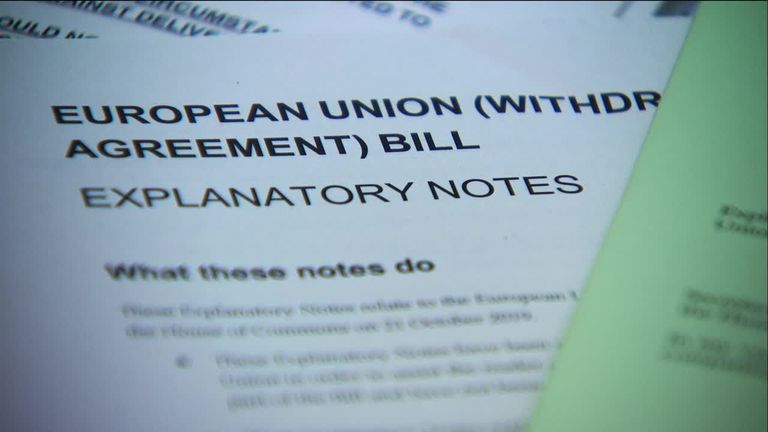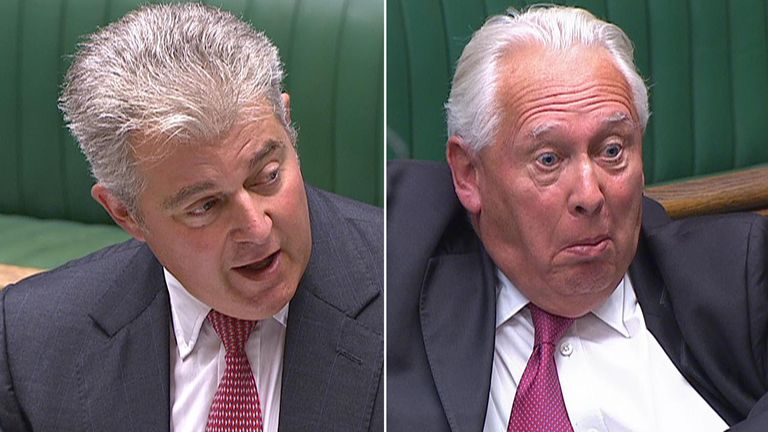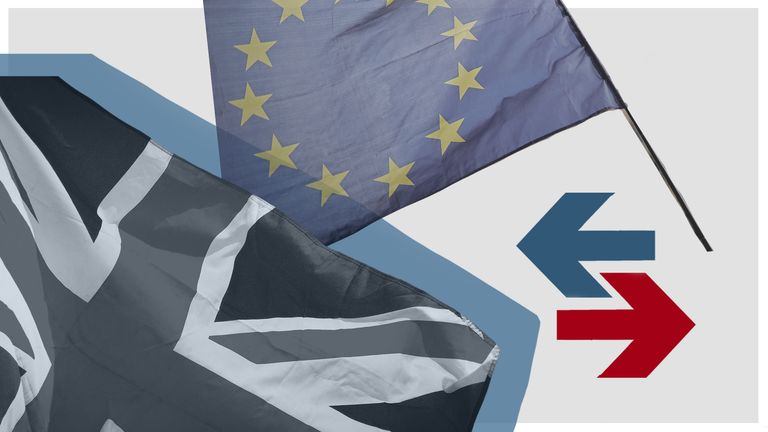Boris Johnson is pressing ahead with plans to publish new laws which would “annul” parts of the Brexit withdrawal agreement, despite a Tory backlash led by predecessor Theresa May.
The government will outline controversial Brexit legislation to give themselves the powers to limit checks and EU influence in Northern Ireland in the event that no trade deal can be struck between the UK and EU by the end of the year.
Under the treaty struck with the EU last year, the UK agreed to determine the issue jointly with the EU, but ministers now claim they need to take unilateral powers to avoid jeopardising peace in Northern Ireland.
Brandon Lewis, the Northern Ireland secretary, admitted it “does break international law” in limited ways and the head of the government legal service, Jonathan Jones, quit over the issue.
Ministers will allow MPs at least four days to debate the issue on the floor of the Commons.
This move, which will highlight the internal critics of the plan, is an attempt to flush out more details of Labour’s policy on Brexit.
Ministers will claim there are precedents for breaking international law, including during Canada’s moves to legalise cannabis.
Downing Street has sought to play down the changes in the Internal Market Bill – to be tabled on Wednesday – insisting they were simply “limited clarifications” to protect the peace process if they failed to secure a free trade deal with the EU.
However, sources say that the bill will go ahead with the plans to annul parts of the Withdrawal Treaty.
The measures to be published later will specifically override last year’s treaty, which passed parliament in January.
It gives ministers the power to unilaterally determine the type of export declarations and procedures for goods leaving the country – one of the most fraught issues currently in the EU-UK talks.
It will also limit the ability of the EU to determine state aid rules in Northern Irish companies which operate on the mainland.
Measures to allow ministers to determine which goods travelling between Great Britain and Northern Ireland must face checks will be included in the Finance Bill later this year.
The controversial changes have triggered a huge row with the governments of Scotland and Wales over who should exercise what powers from next year.
Tory committee chairs including Bob Neil, Tom Tughendhat, Simon Hoare and Tobias Ellwood have all criticised the plan.
Business Secretary Alok Sharma said: “For centuries the UK’s internal market has been the cornerstone of our shared prosperity, delivering unparalleled stability and economic growth across the Union.
“Today’s bill will protect our highly integrated market by guaranteeing that companies can continue to trade unhindered in every part of the UK after the transition period ends and EU law falls away.
“By providing clarity over rules that will govern the UK economy after we take back control of our money and laws, we can increase investment and create new jobs across the United Kingdom, while maintaining our world-leading standards for consumers, workers, food and the environment.
“Without these necessary reforms, the way we trade goods and services between the home nations could be seriously impacted, harming the way we do business within our own borders.
“Now is not the time to create uncertainty for business with new barriers and additional costs that would trash our chances of an economic recovery.”
Mrs May said ministers were now seeking to change the operation of an agreement which the government had signed up to and parliament had passed into UK law.
“Given that, how can the government reassure future international partners that the UK can be trusted to abide by the legal obligations of the agreements it signs?” she demanded.



